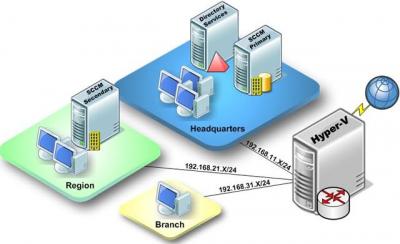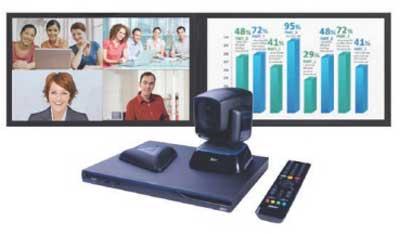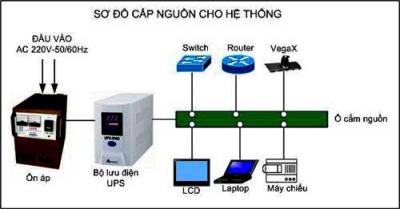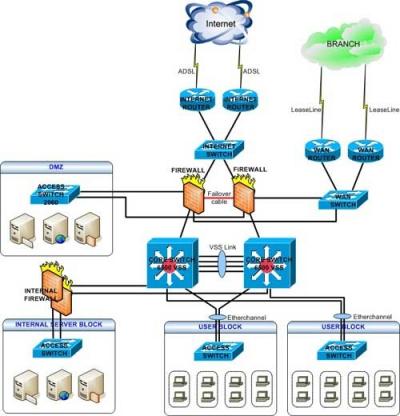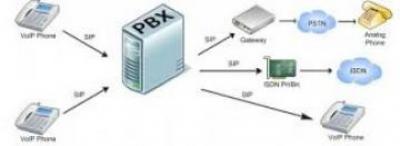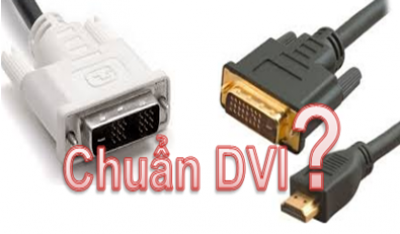
Địa chỉ: 406/55 Cộng Hòa , Phường Tân Bình , Thành Phố Hồ Chí Minh
Điện thoại: 028. 3846 4855
Hotline: 0983.643.653 ( Ms Sương) 0932.679.576 (Mr Thạch)
Email:[email protected]
Website: https://avermedia.com.vn
1. Tổng quan về giải pháp IP Camera
Cùng với sự phát triển mạnh mẽ của công nghệ thông tin, hầu hết các ứng dụng truyền thống đều được dần dần được số hóa và tích hợp vào một hệ thống mạng chung với nền tảng IP và Web. Việc tích hợp IP với khả năng hỗ trợ Web cho phép việc thu thập thông tin, xử lý thông tin, lưu trữ và phân phối nó trở nên dễ dàng uyển chuyển hơn bao giờ hết.

Và hiện nay công việc giám sát bằng hình ảnh từ các camera cũng đã và đang được tích hợp vào hạ tầng mạng. Việc tích hợp vào mạng giúp cho khả năng giám sát có thể được triển khai rộng rãi thông qua các hạ tầng mạng LAN, mạng Intranet hoặc Internet. Nó cũng xóa bỏ khái niệm khoảng cách giữa người giám sát và đối tượng được giám sát. Chỉ cần một đường kết nối mạng, người giám sát có thể ở bất kỳ đâu và đối tượng bị giám sát có thể ở bất kỳ nơi nào. Các hệ thống giám sát tích hợp mạng được gọi chung là IP Camera.
Sự khác biệt giữa hệ thống IP Camera và các hệ thống giám sát CCTV truyền thống (Camera Analog) được mô tả bằng bảng sau:
|
Hệ thống IP Camera |
Hệ thống (CCTV) |
|
Mô tả hệ thống |
 |
 |
|
Truy nhập |
Hệ thống cho phép quản lý đóng và mở với các truy nhập. Hỗ trợ kết nối cho các công tác giám sát từ xa. |
Là một hệ thống đóng và việc hỗ trợ những truy cập từ xa rất hạn chế. |
|
Sử dụng đơn giản |
Có thể quản lý và hiện thị hình ảnh trên bất cứ máy tính nào trong mạng thông qua các trình duyệt Web thông thường. Lưu trữ hình ảnh trực tiếp trên ổ đĩa cứng và tiện lợi trong việc tìm kiếm và sao lưu các dữ liệu đõ mà không sợ chất lượng hình ảnh suy giảm. Hình ảnh có thể được lưu trữ trên một hoặc nhiều máy tính ở trong mạng và hệ thống hỗ trợ lưu trư từ xa |
Khó khăn khi thiết lập những công tác quản trị từ xa. Hình ảnh được lưu trữ trên băng từ, khó bảo quản và chất lượng hình ảnh thu được sẽ kém đi theo thời gian. Các thiết bị ghi analog phải được đặt tại vị trí gần camera và không di chuyển được. |
|
Chất lượng hình ảnh |
Chất lượng hình ảnh sẽ không bị sý hao trên đường truyền và lưu trữ. Hình ảnh được số hóa sử dụng công nghệ Motion-JPEG và Mpeg-4 và có thể lưu trữ với dạng ảnh hoặc clip. |
Độ phân giải của hình ảnh thấp và chất lượng hình ảnh sẽ bị suy hao khi khoảng cách quá xa. Các thiết bị lưu trữ analog có tuổi thọ không cao và dễ hư hỏng theo thời gian. |
|
Yêu cầu hệ thống |
Tất cảc các tín hiệu cần thết đều được truyên fqua hệ thống mạng và được tích hợp sẵn trong mỗi camera. Với một kết nối mạng đơn giản có thể giúp quản trị, hiện thị và điều khiển camera từ bất cứ máy tính nào trong mạng. |
Các camera được kết nối tới một bộ trộn hình ảnh (multiplexer) sau đó tới thiết bị lưu trữ analog và các màn hình loại CRT. |
|
Lắp đặt |
Chỉ cần kết nối tới một nút mạng gần nhất và được cấp một địa chỉ IP |
Hệ thống cable đồng trục sẽ phải kết nối trực tiếp từ tất cả các camera đến bộ multiplexer. |
|
Cable truyền dẫn tín hiệu |
Chỉ cần một kết nối bằng cable mạng tiêu chuẩn UTP. Có thể chuyển hình ảnh từ rất nhiều camera cùng một lúc. |
Một đường cable đồng trục chỉ có thể chuyển tín hiệu từ một camera và một thời điểm, nếu muốn chuyển tín hiệu của hai camera sẽ cần có hai đường cable. |
|
Mở rộng hệ thống |
Việc mở thêm vào hệ thống một hoặc nhều camera sẽ rất đơn giản và không bị giới hạn. |
Sẽ khó khăn rât nhiều cho việc lắp đặt thêm camera cho hệ thống CCTV, khi đó sẽ có nhiều phát sinh về cable tín hiệu và giới hạn của các thiết bị trong hệ thống. |
|
Chi phí |
Tận dụng được hạ tầng mạng có sẵn mà không phải có thêm hệ thống video cho camera. Số lượng các thiết bị được sự dụng trong hệ thống rất it do vậy sẽ dẽ dàng hơn trong việc quản lý và bảo dưỡng. Hệ thống mạng có thể hỗ trợ không hạn chế số lượng camera và không cần phải bổ xung thêm thiết bị khác. |
Phải xây dựng thêm hạ tầng video cho hệ thống CCTV song song với hệ thống mạng có sẵn. Rất nhiều thiết bị phải sử dụng trong hệ thống do vậy chi phí cho bảo dưỡng cho các thết bị sẽ tăng. Số lượng Camera sẽ phụ thuộc vào cấu hình của các thiết bị kèm theo, khi mở rộng số lượng các thiết bị đi kèm sẽ tăng lên. |
Hệ thống giám sát lạc hậu trước đây phụ thuộc vào các camera thế hệ cũ được lắp đặt tại rất nhiều vị trí khác nhau để bảo đảm chức năng hoạt động của hệ. Hệ thống giám sát kiểu cũ này cần phải được duy tu bảo dưỡng bởi một số nhân viên kỹ thuật và những người này phải đi đến trực tiếp từng điểm khi cần xem xét hay sửa chữa các hỏng hóc. IP Camera có thể làm giảm chi phí nhân công một cách hiệu quả, và đồng thời cho khả năng giám sát tốt các thiết bị sản xuất và tài sản một cách linh hoạt, có tính khả thi và có độ tin cậy cao.
2. Đặc điểm của hệ thống giám sát IP
IP Camera cung cấp một giải pháp hoàn hảo cho việc giám sát an ninh từ xa, bảo vệ tài sản hay truyền hình trực tiếp các sự kiện đang diễn ra thông qua mạng máy tính sẵn có hay thông qua mạng Internet.
Một hệ thống mạng video kỹ thuật số có thể truyền video mà không cần hạ tầng vật lý về video. Nó sử dụng các mạng IP tiêu chuẩn, giống như mạng nội bộ hay Internet để truyền thông tin. Hệ thống này tiện dụng hơn rất nhiều hệ thống kết nối điểm đến điểm, như các hệ thống video tương tự (analog).
IP Camera là một công nghệ đã được chứng minh mà với nó bạn có thể có được tất cả các tính năng của một hệ thống tương tự (analog). Đồng thời có thêm nhiều các tính năng vượt trội của công nghệ kỹ thuật số. Sau đây là tổng quan về các lợi ích chính:
Có khả năng truy cập từ xa(Truy cập vào video vào bất cứ lúc nào, từ bất cứ đâu)

Bạn có thể xem hoặc điều khiển vào bất cứ lúc nào từ bất cứ máy tính ở đâu. Hình ảnh Video có thể được lưu trữ vào những thiết bị lưu trữ từ xa để đáp ứng yêu cầu tiện dụng và bảo mật, và thông tin có thể được truyền trên mạng nội bộ hoặc Internet. Điều đó có nghĩa rằng các công ty với các hoạt động nhỏ hoặc từ xa có thể tạo các hiệu ứng sử dụng của giải pháp IP Camera cho các mục địch bảo mật hay theo dõi từ xa.
Giảm chi phí(Tiết kiệm tiền đầu tư và bảo dưỡng)
Video mạng giảm tối đa các chi phí: cơ sở hạ tầng mạng và phần cứng máy tính cũ có thể được sử dụng, vì vậy giá trị đầu tư rất thấp. Tương tự như vậy, chi phí bảo dưỡng hệ thống mạng cũng rất thấp. Trong giải pháp video mạng có ítcác thiết bị cần phải bảo dưỡng hơn hệ thống tương tự truyền thống, ít các thiết bị phải triển khai ngoài trời. Hình ảnh được lưu trữ trong ổ cứng của máy tính, nó gọn gàng và rẻ hơn băng từ và đầu thu VRC.
Tính linh hoạt(Đặt camera tại bất cứ đâu nếu bạn muốn)
Dường như không có giới hạn phạm vi bạn đặt camera, nó không phụ thuộc vào các đầu vào vật lý hay lấy hình ảnh và bạn có thể kết nối sản phẩm vào mạng nội bộ, xDSL, modem, các thiết bị không dây hay điện thoại di động. Cơ bản như bạn nhận cuộc gọi trên điện thoại di động, bạn có thể nhận hình ảnh từ sản phẩm video.

Khả năng mở rộng(Hệ thống có thể lớn bao nhiêu tùy ý bạn)
Giải pháp IP Camera có thể được mở rộng rất đơn giản bằng cách thêm các mamera từng cái một, và nhanh chóng; chỉ mất vài phút để lấy sản phẩm ra khỏi hộp, kết nối và bắt đầu gửi hình ảnh lên trên mạng. Hệ thống có thể hỗ trợ tối đa tới hơn 2000 camera.
Công nghệ trong tương lai(Trên đường đến tương lai)
Công nghệ kỹ thuật số đang trở thành tiêu chuẩn chung và thay thế cho các giải pháp tương tự. Từ khi các sản phẩm IP Camera sử dụng công nghệ này, bạn sẽ nhận được nhiều lợi ích lâu dài kể từ khi bạn đầu tự trong hôm nay. Hơn nữa, các giải pháp IP Camera là hoàn toàn cơ bản trên các tiêu chuẩn và giao thức mở vì vậy hệ thống của bạn dễ dàng di trú đến chỗ mới và nâng cao môi trường và các giải pháp.
3. Các phương thức kết hợp sử dụng IP Camera với các ứng dụng khác:
Có ba phương án:
- Phương án 1: Sử dụng camera mạng thông thường
- Phương án 2: Sử dụng camera mạng có cổng vào ra(I/O) kết hợp với thiết bị báo khói.
- Phương án 3: Sử dụng camera mạng có âm thanh và cổng vào ra(I/O) kết hợp với thiết bị báo khói.
Phương án IP Camera 1
Với phương án này camera sẽ là loại camera mạng truyền hình ảnh trực tiếp về trung tâm.

Mỗi bộ camera đầu cuối sẽ bao gồm:
- 01 camera mạng
- 01 Adaptor nguồn điện của camera.
Phương án IP Camera 2
Với phương án này camera sẽ là loại camera mạng có cổng vào ra(I/O) kết hợp với thiết bị báo khói, camera sẽ chuyền tín hiệu hình ảnh và tín hiệu cảnh báo của thiết bị báo khói (khi báo khói phát hiện có khói) về trung tâm.

Mỗi bộ camera đầu cuối bao gồm:
- 01 camera mạng
- 01 thiết bị báo khói.
- 01 Adaptor nguồn điện của camera.
Phương án IP Camera 3
Phương án này camera sẽ là loại camera mạng tích hợp âm thanh(full duplex) và có cổng vào ra(I/O) kết hợp với thiết bị báo khói, camera sẽ chuyền tín hiệu hình ảnh, âm thanh và tín hiệu của thiết bị báo khói (khi báo khói phát hiện có khói) về trung tâm. Ngoài ra ở phương án này chúng ta kết hợp với loa và microphone cho phép truyền âm thanh 2 chiều giữa trung tâm chỉ huy với bất cứ nút camera mạng đầu cuối nào.

Mỗi bộ camera đầu cuối bao gồm:
- 01 camera mạng .
- 01 thiết bị báo khói.
- 01 Adaptor nguồn của camera.
- 01 loa
- 01 microphone
Quý Khách đang và sẽ có nhu tư vấn, lắp đặt hệ thống Camera quan sát cho công ty hoặc hộ gia đình, từ đơn giản tới phức tạp. Xin vui lòng liên hệ với công ty chúng tôi để được tư vấn và chọn lựa thiết bị cũng như giải pháp lắp đặt tối ưu với chi phí thấp nhất
